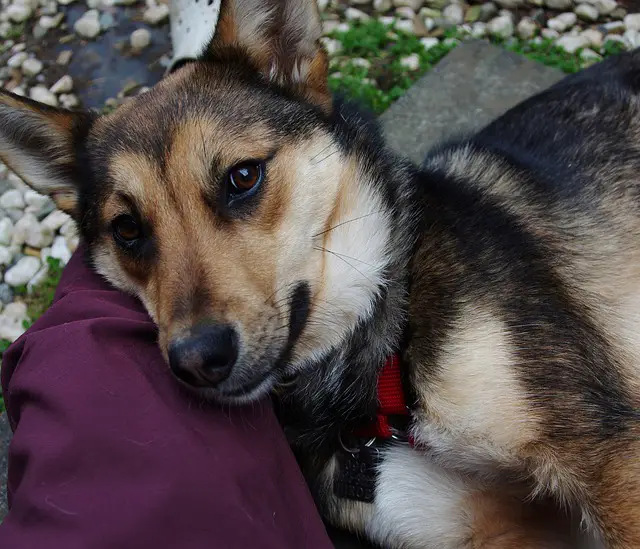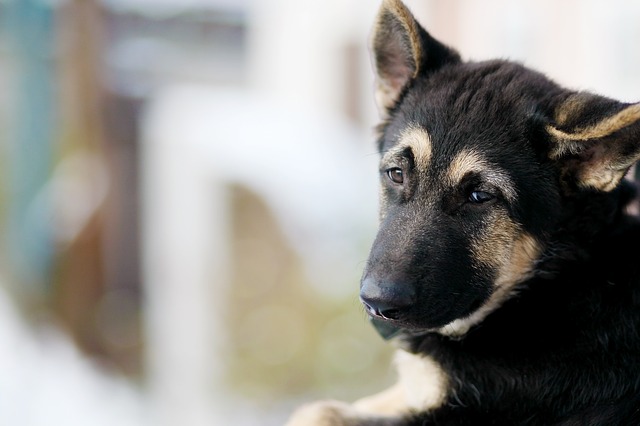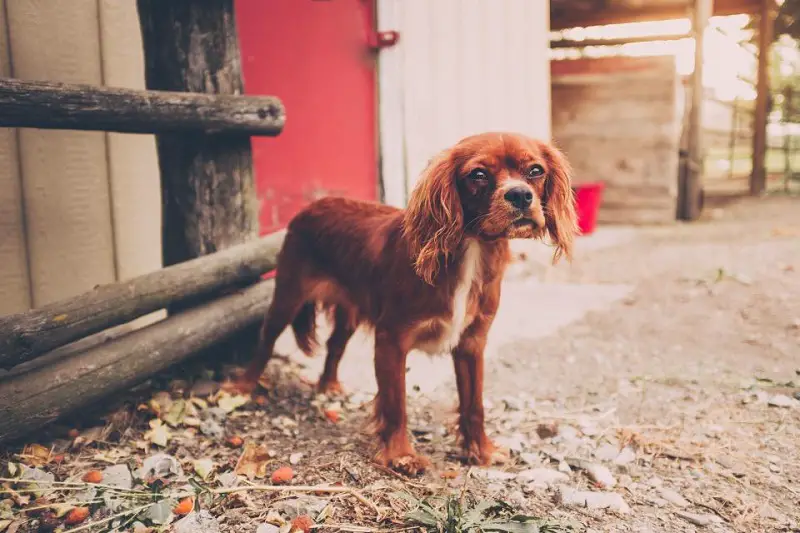If you are asking the question ‘my dog ate a mouse will he get sick?’ then the answer depends. Yes, there is a slight risk that your dog could catch some infection or secondary poisoning from the mouse.
Read on to find out exactly if your dog is at risk.
In this guide, we will cover:
- What to do if your dog ate a mouse?
- 4 Tips to stop your dog from eating a mouse.
- 4 Deadly diseases your dog could acquire if it ate a mouse
- And more…
My Dog Ate a Mouse Will He Get Sick?
If your dog ate a mouse, in most cases, it should be fine. However, it could get sick if the rat it ate carried disease-causing pathogens or parasites. Also, if the rat was poisoned by a rodenticide, then it could harm your dog with undesirable consequences especially secondary poisoning.
My Dog Ate a Mouse Will He Get Sick? 4 Deadly Diseases You Need to Be Aware of

The answer to the question – My Dog Ate a Mouse Will He Get Sick – could be yes or no.
Here’re a list of factors to consider when your dog ate a mouse:
- Was the mouse dead or alive when your dog ate it?
- If dead, what was the cause of death?
- How much of the mouse did your dog eat?
- How long ago did your dog eat the mouse?
- Is your dog showing any symptoms of sickness after eating the mouse?
- What is your dog’s size?
- What is your dog’s overall health, age and immunity?
- Did you use any rat poison around your house recently?
There are some bacteria, parasites, and protozoa that dead mice could carry. Also, a mouse might have been killed by a rodenticide.
As a dog owner, it is important you are aware of these conditions- especially of the symptoms they could cause if your dog ingests a mouse having these parasites/microbes or rat bait toxins in its body:
1) If your dog ate a mouse having protozoan parasites
Toxoplasmosis
According to the experts at Vet West, rodents like mice and rats could become infected with a protozoan parasite called toxoplasmosis gondii. These parasites come through water or soil. Mice being scavengers eat from the garbage cans and pretty much anything they lay their eyes on.
Therefore, there is a high chance that the mouse your dog ate could carry toxoplasmosis organisms. Toxoplasmosis symptoms can occur 10-23 days after your dog came in contact with the contaminated mouse.
Signs of toxoplasmosis in dogs are:
- Diarrhea
- Fever
- Vomiting
- Lethargy
Your vet will diagnose toxoplasmosis using certain blood tests. There is a chance your pet will fully recover as long as he gets treated right away with antibiotics and IV fluids.
Coccidium
Coccidia are single-celled protozoa that are present in mice due to the unsanitary conditions they live in. They could cause coccidiosis in dogs that eat the infected mouse. Clinical signs of coccidiosis can occur 17 days after ingesting the infected mouse.
Symptoms of coccidiosis are:
- Weight Loss
- Paleness
- Depression
- Lethargy
- Lack of appetite and
- Bloody diarrhea.
Your vet might order some fecal tests to determine if your dog has coccidiosis. Medicines like sulfadimethoxine or ponazuril can help treat coccidiosis in canines.
2) If your dog ate a mouse carrying intestinal worms
According to PetMD, the gastrointestinal tract of rats carry helminths or worms like tapeworms, pinworms, and roundworms. If a dog eats an infected rat, then it could acquire those worms and their eggs.
Signs of worms in dogs are:
- Diarrhea
- Increased appetite but with weight loss
- Excess licking of anus
- Presence of worms or parts of worm segments in the feces
- Intestinal blockage
- Liver enlargement and formation of cysts.
To get rid of worms, follow a strict deworming schedule as prescribed by your vet.
3) If your dog ate a mouse having certain bacteria
Salmonella
Rodents could also carry salmonella bacteria in their intestines. Even if your dog comes in contact with rodent poop, it could acquire salmonella within 6 hours to 6 days after exposure. A dog that eats salmonella infested rat meat or rat droppings could acquire salmonella bacteria within 8 to 72 hours.
Salmonella symptoms include:
- Chills
- Fever
- Abdominal cramps
- Diarrhea
- Vomiting
Tularemia
Like salmonella, another bacteria called Francisella tularensis can also cause life threatening disease called Tularemia in dogs. The symptoms of tularemia are very high fever, joint ache, lethargy, etc.Clinical signs of tularemia can occur within 3 to 5 days after eating infected mice.
If your dog shows these signs, please call your vet immediately.
Botulism
Dead animal carcasses also carry another deadly bacterium called clostridium botulinum. This too can cause a very serious condition called botulism in dogs that handle such carcasses. Symptoms can occur within 18 to 36 hours after eating the infected mouse.
Botulism is a neurotoxin that can cause the following symptoms:
- In early stages, there is weakness and lethargy
- The affected dog might soon get paralyzed in all 4 limbs.
- In final stages, the dog’s ability to breathe is impacted. This becomes the cause of death.
4) If your dog ate a mouse killed by rat poison
If your dog happens to eat a rat that has been killed by a rodenticide or rat poison, then it is at a risk of what is known as secondary poisoning. Secondary poisoning occurs when a dog acquires the same bait or toxins that killed the mouse in the first place.
Signs of secondary rat poisoning are:
- Nose bleed
- Presence of blood in urine
- Difficulty breathing
- Restlessness
- Lack of appetite
- Diarrhea
- Vomiting
- Pale or bleeding gums
- Painful/swollen joints
- Lethargy
- Weakness
Not all dogs that eat a poisoned rat are at a risk of secondary rat poisoning. The degree or extent to which a dog is affected depends on the following factors:
- Age and size of your dog
- How much rat it ate
- The kind of poison that was used to kill the rat. In the next section, we will discuss common rat poisons and the symptoms they can cause in a dog.
In any case, if you suspect your dog has eaten or even licked a dead mouse that was killed by rat poison, then please call your vet right away.
4 Most Common Rat Poisons Toxic to Dogs and Symptoms They Cause

Here are 4 most common rat poisons that could cause secondary poisoning in dogs and the symptoms they could trigger:
1. Bromethalin
Bromethalin works by increasing the sodium levels in the cells. The cells then absorb water and swell up, killing the animal in the process.
If your dog eats a mouse that was killed by bromethalin, depending on the quantity used, a dog could show symptoms of poisoning within 24 hours.
In higher doses, dogs that ingest a mouse with bromethalin can show:
- Hyperthermia
- Muscle tremors/shaking
- Seizures
- Restlessness
In milder doses, symptoms can be seen in 1-3 days. These symptoms may include:
- Partial paralysis
- Inability to move limbs
- Vomiting
- Diarrhea
- Depression.
2. Cholecalciferol
Cholecalciferol works by increasing the calcium levels in the body. This causes acute renal failure and can even cause cardiac arrest.
Dogs that ingest cholecalciferol rodenticide in large quantities could show the following signs within 4-36 hours of consumption.
- Lethargy
- Arrhythmia
- Increased thirst
- Increased urination
- Fatigue
3. Anticoagulant rodenticides
Anticoagulant rodenticides work by cutting off vitamin K absorption. This leads to severe internal bleeding.
These poisons are slow acting and cause symptoms only after 2-7 days after ingestion:
- Bleeding gums
- Blood in urine and stools
- Lack of appetite
- Vomiting
4. Zinc phosphide and strychnine
The likelihood of your dog getting exposed to zinc phosphide rodenticide is low because only professional pest control agencies have access to it. This deadly rat poison releases phosphide gas in the rat’s body and kills it immediately. Unfortunately, the gas smells like fish which can attract cats and dogs to the dead mouse carcass.
If you suspect your pet has ingested a rat that was killed by zinc phosphide, then please rush it to the vet right away.You might smell the phosphide gas on your dog’s breath. If that is the case, please open the car’s windows to limit your exposure to the toxin.
Why Are Dogs Attracted to Dead Mice?

Dogs are scavengers. They will pick up and eat everything and especially dead animals like rodents. Here are two main reasons why dogs love dead mice or rodents:
1. Sense of smell
Dogs are attracted to the smell of dead, decaying things. One reason could be their powerful sense of smell. A dog’s nose has a highly-developed olfactory receptor system that is much more powerful than that in humans.
This sense of smell helps them survive in the wild. That is why wolves, which are the closest ancestors of dogs, have such a powerful sense of smell. That is how they find their food and survive. There is also a theory that wolves hang out around dead things because the strong smell keeps away predators by masking their own smell.
Domesticated dogs still retain this trait. That is one of the reasons why your dog is attracted to dead mice.
2. Natural instinct
As explained before, a lot of it has to also do with your dog’s breed and natural instincts. Some terrier breeds were taught to drive away rodents. These dogs come in handy on farms as they help keep vermin away from foodstock.
Breeds like retrievers were taught to ‘retrieve’ dead animals after their masters hunted them. These dogs also have the hunting prey and will be tempted to chase mice. Don’t be surprised if your smart Golden Retriever brings over a dead mouse as an offering to you. To the dog this is a very natural and loving act, although you might get disgusted by it.
Find Out Interesting Reasons Why a Yorkie Eats Poop!
What Should You Do If Your Dog Ate a Dead Mouse?

If you suspect your dog has eaten a dead mouse, then please call your vet and give as many details as possible.
- How long ago did your dog eat the mouse?
- How much did your dog consume?
- Your dog’s age, weight, and overall health condition.
The good news is that if your dog has simply licked the mouse, it might not have eaten enough to get seriously sick. Also, a larger dog might be able to digest the mouse and may not show any symptoms.
If your dog has started showing signs of poisoning, then your vet can induce vomiting. This can help your dog feel better. Depending on the severity of symptoms, vets advise keeping the dog under observation and on IV fluids for a couple of days.
In a dog without any symptoms, it is still advisable to keep an eye on its feces. Many rat-related diseases manifest a few days or weeks after ingestion. Worms take a while to hatch so keep an eye on the dog’s stools. If you notice diarrhea, segments of worms, or other signs, speak to your vet about a deworming protocol.
My Dog Ate Mouse Poop – Should I Be Concerned?

Mouse poop isn’t necessarily toxic to dogs but there is a chance your dog could get sick if there is rat toxin or rat bait present in it. Also, dogs could get leptospirosis from mouse poop if there is infected rat urine present on those feces.
The good news is that it takes a lot of mouse poop to make your dog seriously sick. If you do live in an area where there is a high mice population and you suspect the rat droppings may contain rodenticides, then please call your vet. Secondary poisoning from rat poison is the biggest risk you need to worry about..
The second risk to dogs from eating mouse poop is leptospirosis. According to animal charity PDSA,
“If your dog has a mild case of leptospirosis, your vet may be able to use antibiotics, a fluid drip and other medicines to help fight the disease. Sadly, if your dog becomes seriously ill with leptospirosis, you may need to consider putting it to sleep to stop its suffering.”
4 Tips to Prevent Dog from Eating a Mouse or Mouse Poop

Here are some tips to help you prevent your dog from eating mouse poop or a dead/alive mouse:
1. Teach it the drop/leave command
The drop it or leave command is the best way to get your dog to leave anything objectionable it may have picked up.
2. Get rid of mice in your house
Make sure you leave no food outside that could attract mice. If needed, seek help from professional exterminators.
3. Muzzle your dog
If your dog eats everything on its walks, then keeping it muzzled may be the best solution to prevent a lot of hassles and health issues.
4. Do not leave your pet unsupervised
During the day, get a pet sitter to watch your dog when you are at work. At other times, crate the dog where it won’t have access to rats or mouse poop.
What to Do if Your Dog Ate Rat Poison?
The experts at VetsNow recommend the following steps to dog owners whose dogs have ingested rat poison:
Call your vet or the poison control number 1800-222-1222. Keep the following details handy:
- Dog’s age, breed, and weight
- How long ago did he ingest the poison?
- The type of poison.
- Approximately how much of it did your dog ingest
If your dog is already showing signs and symptoms of poisoning (lethargy, vomiting blood, etc.), rush him to the nearest medical emergency veterinary center. Take the poison packet with you if needed.
Find out 14 Interesting Reasons Why Dogs Smell When They Come in From Outside!


